Data migration is one of the dirty little secrets of health care IT.
The typical high cost to migrate data from a legacy system to a new
system represents one of the largest barriers customers face when
moving from a legacy system to new technology (or a new vendor).
Switching costs and lock-ins are ubiquitous in information systems, and
managing these costs is very tricky for both buyers and sellers.
In using or selling information systems, fully anticipating future
switching costs, both yours and those of your customers, is critical.
Lock-in can be a source of enormous headaches, or substantial profits,
depending on whether you are the one stuck in the locked room or the
one in possession of the key to the door. The way to win in markets
with switching with switching costs is neither to avoid lock-in nor to
embrace it. You need to think strategically; look ahead and reason back.
The excerpt above is from Information Rules, one of the books on the Connectologist's Reading List, and a strategy guide on economic principles and their relevance to information goods.
Migratek is a great example of a vendor that brings value to what
is typically a problematic and expensive phase in a product's life
cycle. The following from their press release:
timeline for the PACS implementation was very compressed so we needed a
migration solution that could handle the migration as fast as possible.
Additionally, we needed a solution to automate the Medical Record Update to
eliminate the need for the staff to manually update over 100,000 studies. We
chose Migratek because they were able to meet our requirements in both areas. We
are very happy with the service that Migratek has provided.” said Larry Ranahan,
CEO of Meridian Regional Imaging,
In another
project, Migratek’s Rapid Migration Services are being used to perform a Kodak
(Cemax-Icon) to Emageon migration of 16TB of data, stored on 220 DLT tapes. When
the project is complete over 650,000 studies will be migrated. Migratek was
selected because of their expert knowledge of the migration requirements and
because the customer needed to quickly perform the migration in order to retire
their legacy system and discontinue costly support payments. The exceptionally
high transfer rate that can be achieved using the Migratek Migratek’s
dicomBLAST™ Appliance was a key factor in the selection of Migratek for this
project.
Remember to look ahead and reason back.
UPDATE: Peter over at Chief Complaint has a related post about the impact of obsolescence and interoperability.


Recent Comments